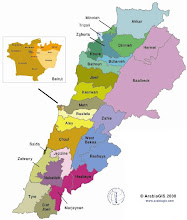 I have just finished a piece for the think tank the Foreign Policy Centre on electoral reform in Lebanon. The piece focused on why there was such a misunderstanding of the Lebanese elections by the Western media and on the desire for electoral reform in Lebanon.
I have just finished a piece for the think tank the Foreign Policy Centre on electoral reform in Lebanon. The piece focused on why there was such a misunderstanding of the Lebanese elections by the Western media and on the desire for electoral reform in Lebanon.
Electoral Reform in Lebanon
In June 2009 Lebanon held its first 'free' election since 1972. On the conclusion of the elections Western media and political analysts were particularly guilty of premature celebrations and hyperbole, regarding the Western backed March 14 coalition election victory. These past elections were not a battle in which: "President Barack Obama defeated President Mahmoud Ahmadinejad of Iran"(1) or Western ideals of liberal democracy triumphed against Islamic totalitarianism. This confusion was immediately evident after the winning March 14 coalition soon began to fracture and Lebanon fell into all too familiar political paralysis. The reason for this misplaced euphoria by Western pundits was due to an essential misunderstanding about the battle being fought on the Lebanese political playing field. These elections were largely void of political ideology and were centered on the fight to represent certain sectarian groups, especially so for the Christian population, and the protection of patrimonial networks. Consociational politics have been deliberately established in Lebanon to ensure the protection of minority groups and ensure power sharing. But the politics of sect are not seen as sufficient by the Lebanese and there is a strong desire among civil society actors to change this consociational politics. One method being pushed, in this battle of "bad governance against good," is electoral reform. Reformers are trying to ensure that in the creation of a new election law for the 2013 elections two mechanisms are introduced: Proportional Representation (PR) and the creation of a Senate.
TO CARRY ON READING: http://fpc.org.uk/articles/457



